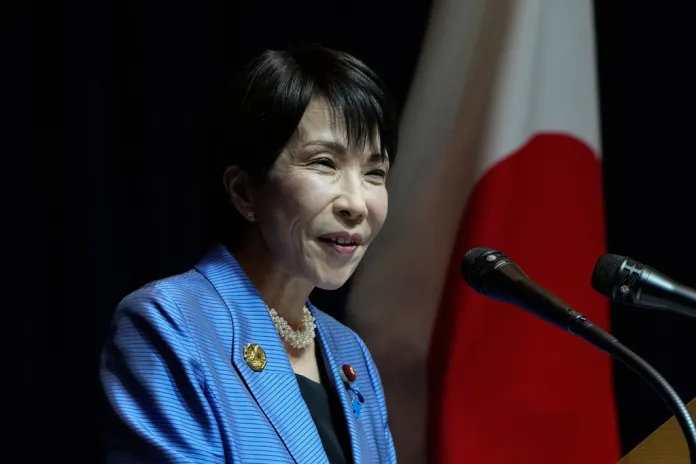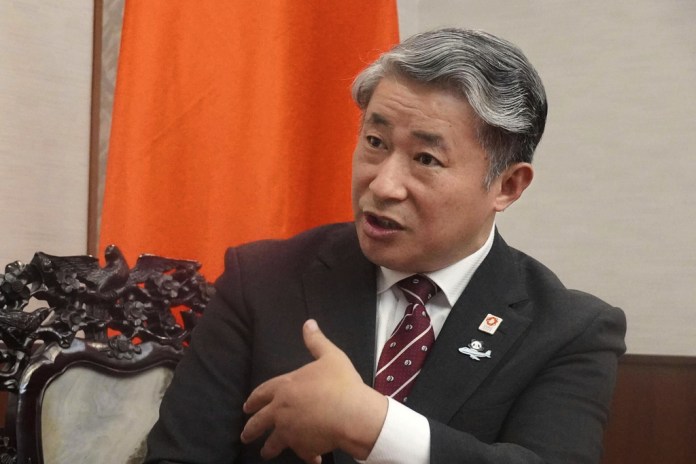An offhand remark from the prime minister of Japan has roiled Beijing, unleashing an onslaught of accusations and even threats of decapitation from Chinese officials.
The Chinese Communist Party demanded that Prime Minister Sanae Takaichi retract her assertion last week that a hypothetical invasion of Taiwan would be a “survival-threatening situation” to Japan. Under Japanese law, that term designates a scenario in which the purely defensive Japanese military can deploy.
“Japanese Prime Minister Sanae Takaichi made provocative remarks on Taiwan, which imply the possibility of armed intervention in the Taiwan Strait. Despite China’s serious démarches and protests, she still refused to change course and take back what she had said,” Chinese Foreign Ministry spokesman Lin Jian declared at a Thursday press conference.

The Chinese ministry called Takaichi’s comment a “blatant interference in China’s internal affairs, a challenge to China’s core interests, and infringement on China’s sovereignty. It also said the prime minister must “retract the unjustified remarks” or else “all the consequences arising therefrom must be borne by the Japanese side.”
Lin’s rebuke was tame compared to previous comments made by Chinese Consul General Xue Jian, who publicly fantasized about decapitating Takaichi on social media.
“We have no choice but cut off that dirty neck that has been lunged at us without hesitation,” Xue, who is stationed in Osaka, wrote. “Are you ready?”
Japanese Chief Cabinet Secretary Minoru Kihara said the “intent” of Xue’s remark was “not entirely clear” but still “extremely inappropriate.”
The ruling Liberal Democratic Party passed a resolution on Tuesday threatening to deport Xue and designate him as a persona non grata if the Chinese government did not take appropriate action. Xue’s social media post was deleted.
Takaichi has refused to walk back her statement, insisting that her views are “consistent with the government’s traditional position.”
Japan is widely considered the most important U.S. ally in East Asia and a bulwark against Chinese expansionism in the region.

President Donald Trump has largely avoided addressing the question of Taiwan’s sovereignty since returning to the White House earlier this year. However, his administration seems to be investigating various factions behind the scenes as it seeks to formulate a long-term policy on the conflict.
The American Institute in Taiwan, the de facto embassy of the United States on the island, invited Kuomintang Chairwoman Cheng Li-wun to speak with top U.S. envoy Raymond Greene on Wednesday. The Kuomintang is the island’s conservative opposition party and takes a more passive stance with the mainland government.
TAKAICHI CHANNELS ABE IN COURTING TRUMP AS PRESIDENT AFFIRMS NEW FRIENDSHIP
“The U.S. has never sought conflict across the Taiwan Strait. The primary goal is to avoid war and ensure that any cross-strait differences are handled peacefully and without coercion,” Greene said after the meeting.
Green reportedly invited Cheng to visit the U.S. soon to discuss how best to avoid military conflict between Taiwan and the mainland.
